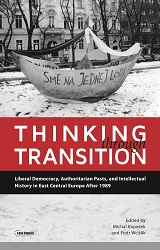

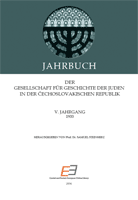
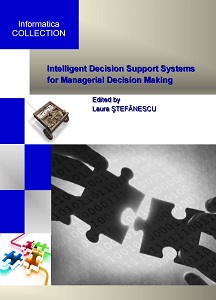
Keywords: e-commerce system; decision-making; e-commerce system modelling; e-commerce system simulations
Electronic commerce (e-commerce) is a very powerful tool for implementing business activities. Essential support for electronic commerce is the so-called e-commerce system. E-commerce systems are systems aimed at a broad target group and require specific approaches to decision-making. The optimal and most exact way how to obtain and find optimal solution of e-commerce system, its process structure, management and decision-making is modeling and simulation. Creation of simulation can be divided into three basic steps. The first step is the creation of appropriate models, the second step is to carry out a detailed mathematical description of these models and the last step is to propose system for simulation. In this paper, in the first part, the authors describe the structure of e-commerce system and its management system, the methods of e-commerce systems modeling based on process oriented, value-chain oriented and multi-agent system oriented approaches. The second part focuses on e-commerce systems simulations as a decision-making support and the main attention is devoted to definition of production function, equations of state and heuristic management of the production process, all in direct relation to the implementation of simulation system.
More...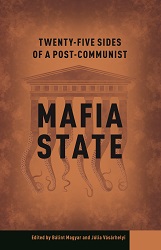
Keywords: political career;Orbán;Church – state relations;Hungary;
In December 2005, Viktor Orbán participated in an Advent conversation with Béla Balás, bishop of Kaposvár and Zoltán Balog, a Calvinist pastor (today Minister of Human Resources), where he talked about his own faith, his commitment to Christianity, his political mission, and also touched on topics like the fear of God, religious life, the relationship between government and Church, and the Church as an absolute standard of values, revealing to the audience his ars poetica as a politician and a leader.
More...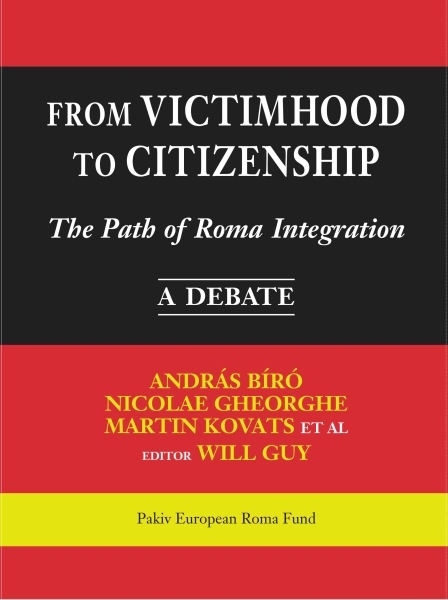
The main purpose of this whole endeavour has been to stimulate dialogue between activists, intellectuals and commentators. encouraging this dialogue has been in the forefront of the initiators’ minds from the very start. For this reason it was decided to extend the discussion beyond the initial debate between the authors of the three essays through the medium of print as far as possible. Consequently a number of activists and intellectuals were invited to offer a short response to the essays in preparation for fuller discussion at a follow-up workshop. brief extracts from these comments are included as text boxes accompanying the edited transcript of the workshop proceedings. Roma and non-roma with similar interests in developing the current level of discourse surrounding roma took part in a workshop held near bucharest in the autumn of 2011. The first day allowed participants to clarify points with the authors and engage in preliminary discussions, while the second day’s proceedings – which were recorded and subsequently transcribed – were devoted to more focused debate on what had been identified as key topics.
More...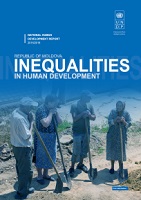
Instead of an Abstract/Summary here, please refer to the Introduction PDF-file which includes the Executive Summary. Thank You.
More...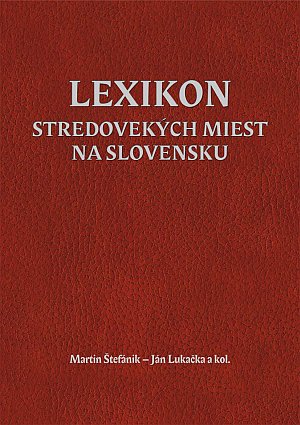
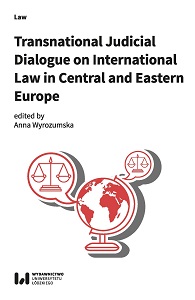
Keywords: Constitutional Courts; Constitutional Pluralism; Judicial Dialogue
More...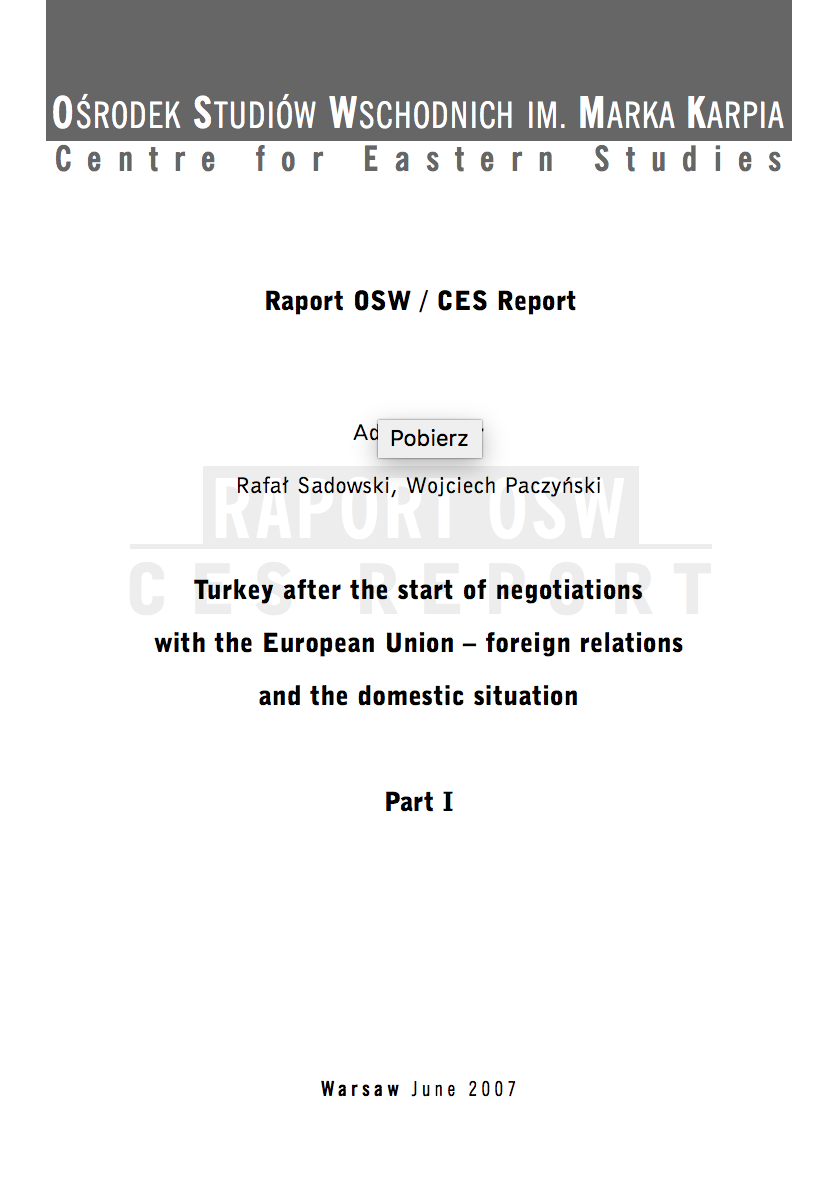
Keywords: Turkey; European Union
The start of accession negotiations between Ankara and the EU is vital for the future of both Turkey and the Union, including Poland as its member state, as well as for the geopolitical situation in Eurasia (the Black Sea region, Caucasus, Central Asia and the Middle East). Appreciating the significance of these issues, the Centre for Eastern Studies in early 2005 decided to launch a project entitled "Turkey after the start of negotiations with the European Union - foreign relations and the domestic situation". The goal of this project is to present, within the context of accession negotiations, Turkey's greatest internal challenges as well as Ankara's relations with its neighbour regions, the EU and the USA. This Report is the first of three which will be published as part of the project. The Report includes texts on Turkish-US relations since 2003, major political and social challenges on Turkey's path towards the EU and the current condition of the Turkish economy. The Report was developed between July 2005 and November 2006, over which time CES workers and associates searched for publicly available materials in Poland, Turkey and EU countries, and went on three research trips to Turkey, where they met local researchers, analysts, politicians and officials. The authors of the Report would like to express their gratitude to everyone who have shared their opinions with them, and to the Polish Embassy in Ankara, especially to Ambassador Grzegorz Michalski and Minister Andrzej Ananicz for their expert support and assistance in the authors' work on this Report. This Report does not present the official stance of the Polish government on the issues discussed therein; instead it reflects the personal views of its authors, who have made their best efforts to ensure that their work is reliable.
More...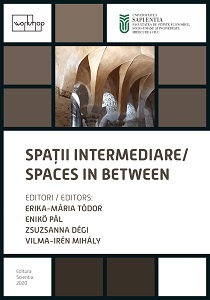
Keywords: Istrati; autobiography; autofiction; narratology; modernism;
Starting from the premise that Panait Istrati’s work has mistakenly been assessed according to the critical trends of Romanticism, we shall prove that this modern writer deserves an analysis from the viewpoint of the century-turn avant-garde criticism and of New Criticism, putting aside the author’s biography while reading and focusing instead on the message of the text. Therefore, based on the literary theory of French narratologists P. Lejeune, P. Gasparini, S. Doubrovsky, and L. Jenny on autobiography and autofiction, we shall introduce and examine two examples of erroneous presentation of Istrati’s work as an autobiography but also pro-autobiographical and pro-autofictional arguments, as the author of an autobiography is at least superficial and due to the writer’s marginalization in Romanian literature and that such classification demands to be nuanced on the grounds of the new critical tendencies that emerged in the 19th and the 20th centuries in Western-European and North-American literary theory, according to which Istrati’s work (universe) appears to be a series of autobiographical novels resulting from a pacte romanesque with autobiographical hints. To support the new definition, we shall present and examine several analyses by modern French, British, and American narratologists and by ancient Greek philosophers as to why and how literature is written and interpreted, along with adequate quotations from Panait Istrati’s fictional work and truly autobiographical writings of the author. Hence, we shall see that Istrati’s work is not an autobiography but an engaged writing, whose purpose is political in order to influence the masses.
More...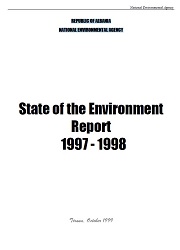
Keywords: Ecology in Albania;
More...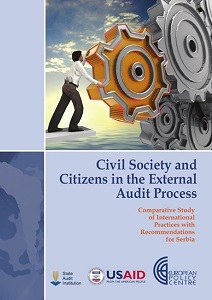
Keywords: state-audit; civil society;
The aim of this Study is to provide the most appropriate solutions to the State Audit Institution of Serbia for the inclusion of citizens in the external audit process as well as to provide sustainable and more institutionalized forms of cooperation with civil society organizations. The Study adopts a comparative approach in its thorough analysis of European and non-European experiences and existing domestic institutional practices. A qualitative methodology was adopted in the form of a combination of primary and secondary sources, i.e. data collection was conducted through in-depth semi-structured interviews, electronic questionnaires, and the analysis of legislative and institutional frameworks and practices in regards to citizens’ cooperation in external audit process and cooperation of supreme audit institutions with the civil society. The methods applied proved as adequate in terms of analyzing comparative practices in the chosen systems and for getting a broader insight of the examples in the areas of transparency and government accountability, and more specifically in external audit, across a variety of states.
More...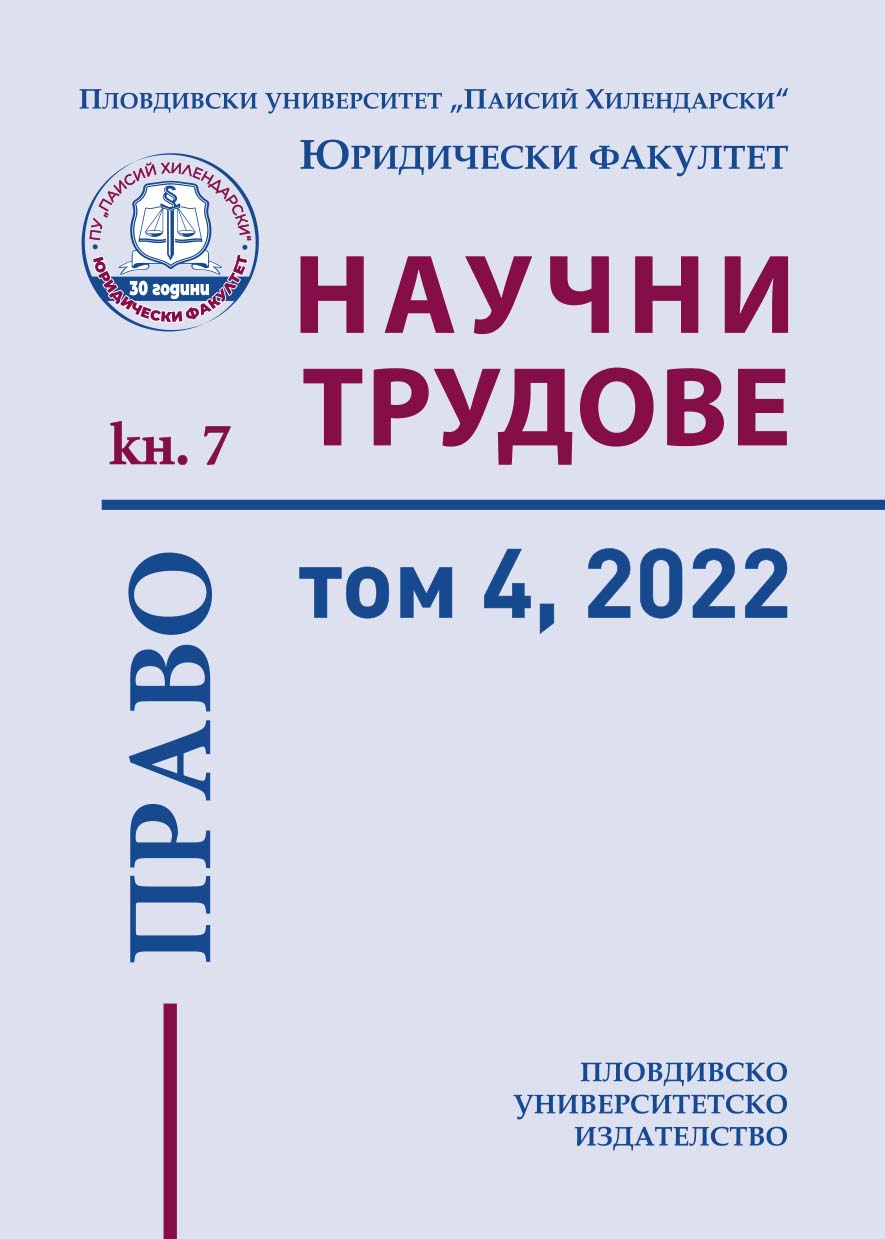
Keywords: COVID-19; state of emergency; private law; suspension of deadlines; force majeure; economic frustration
The law is not a frozen regulator of public relations and it must take into account sudden changes in the reality. In 2020, 2021, and in the beginning of 2022, our country and the world were hit by a major medical and social evil – the pandemic of the deadly disease COVID-19. It led to a number of changes in the legal framework of various relations in all parts of law, but the most it affected private relations. The state had to intervene through different mechanisms to protect the rights of subjects of civil and commercial law. For the first time on the territory of our country a state of emergency was introduced by an act of the National Assembly. Deadlines were suspended, force majeure and economic frustration were applied, video conferencing was introduced in court proceedings. It is important for science to pay attention to the specific manifestations of these phenomena and to study their application in the justice. Although most of the processes are related to a past stage, they remain relevant, because the events of early 2022 portend turbulent and risky days, no less safe than the already ending pandemic. The dangerous epidemiological situation is being replaced by a worrying high-risk inflation situation fuelled by a military conflict. The red light is still on.
More...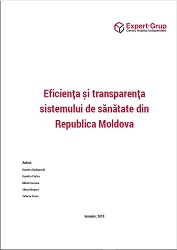
Keywords: health-care system in Moldova;
Each country, depending on its historical course, state concept and economic development, has developed its own health system. Despite the fact that health systems are so diverse, they also have a lot in common, because they essentially perform the same functions and have the same goals. Thus, under certain conditions the exchange of experience between countries on solving similar problems or how to respond to common challenges are very useful. For the Republic of Moldova – a state in transition from a society based on state ownership and a centralized economy, the experience of other states on this subject is even more important because it can be used in the process of reforming the health system. // The purpose of this study is to contribute to the openness of the health system by providing an integrative view of the transparency of the health system and highlight the results and the way the system is financed and managed. Thus, the study addresses topics related to the functionality of the system as a whole, and less the specific areas of the health system. The study contains 5 basic chapters, the introduction and a chapter of conclusions and general recommendations. Each core chapter contains in turn a subchapter of specific conclusions and recommendations.
More...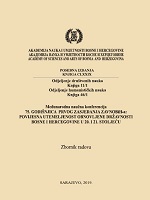
Keywords: ethnonationalism; social contract; value pluralism; Anti-Fascism;
Author starts with a claim that three decades long domination of ethnic nationalism in Bosnia and Herzegovina (BIH) is based on a process of mobilization of internal ethnicities resulting in production of distinctive social realities, which eventually might lead to distinctive territorial-political entities, nuclei of would-be single-nation states. Contrary to this process, based on experience of political solidarity, as a counter-principle, author identifies the principles of ZAVNOBIH (Anti-Fascist Council of People’s Liberation of Bosnia and Herzegovina). Author suggests that ZAVNOBIH represents a unique autochthonous compact of social and political unity in all its complexity and plurality of values. Being as such, it represents an authentic answer to the eternal political question: “What holds us together?” This compact is, according to author, based on three important principles: value pluralism (I. Berlin), social justice, and Anti-Fascist principle.
More...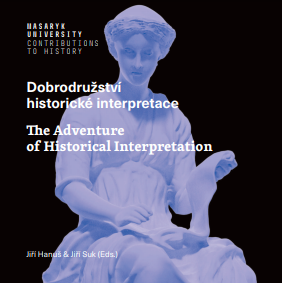
Keywords: history; methodology; historiography;
It seems slightly egocentric to write about how you wrote your own book, and I also wonder if such a contribution would even interest anyone. It was only at the repeated urging of my esteemed colleague, Jiří Suk (whose books always become bestsellers), that I set myself to this task. Perhaps the mere mention of his name will attract some readers to a book consisting of several such egotistical texts.
More...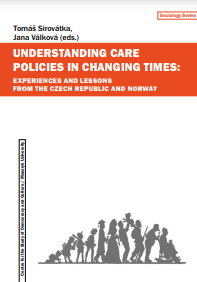
Keywords: Norway; Czech Republic; care; policy; politics;
This chapter is devoted to the comparison of design and governance of contemporary childcare and eldercare policies in Norway and the Czech Republic, countries that face historically similar (although not equal) structures of in-need populations. In the case of childcare, both countries are similar regarding the parental behaviour of the population, the proportion of preschool children to the total population (3–4 percent), most of whom grow up in two-parent households (52 percent in Norway, 38 percent in the Czech Republic in 2014), and the proportion of children with disabilities or other specific needs (under 10 percent of children living in at-risk-of-poverty households in Norway, and under 15 percent of such children in the Czech Republic) (ČSÚ 2015; Statistics Norway 2015). In case of eldercare, the populations in Norway and in the Czech Republic are ageing like in other European countries (15.9 percent of people are above 65 years in Norway and 17.4 percent in the Czech Republic in 2014) due to the long-term decline in fertility and the increasing life expectancy. This situation is expected to continue in the coming decades (more than 21 percent of the population is expected to be older than 65 in Norway and more than 27 percent in the Czech Republic in the year 2050) (Eurostat 2015).
More...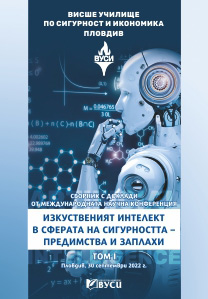
Keywords: artificial intelligence; educational institutions; digital agriculture sustainable development of the rural economy
The development and implementation of artificial intelligence (AI) is largely determined by the development and potential of the anthropogenic factor. This means the availability of sufficient specialists, on the one hand, related to specific knowledge in the specific field, as well as skills for scientific research activity using appropriate methods and means to prove characteristics and trends. On the other hand, the implementation of the results in a practical environment and the teaching experience about the usefulness of introducing intelligent systems in a wider environment is also determined by human potential. Today, the „fourth industrial revolution“ in the agricultural sector is particularly important and necessary, i.e. digital agriculture to be the basis of the modern agrarian revolution in the Republic of Bulgaria. It is only through wide application of scientific achievements and innovations that it is possible to achieve quality results in agriculture. The modern economy today is characterized by the rapid entry of artificial intelligence AI, which is changing a number of economic sectors, including and agriculture and the rural economy, as territory. Society as a whole is facing sweeping transformations and a new technological revolution. In our country, AI as a key tool of development is entering more slowly, but more importantly, it is becoming a catalyst for the need for digital transformation.
More...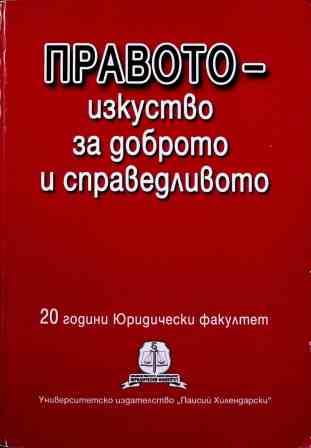
Keywords: nullity; nullification; contract; evaluation
The author discusses criteria of differentiation between the nullity and the nullification of contracts; their field of application and the stages of judicial evaluation in the procedure of pretended nullification (i.e. avoidance). In the last part of the analysis were paid attention to the principles of civil procedure both with the feature of nullification.
More...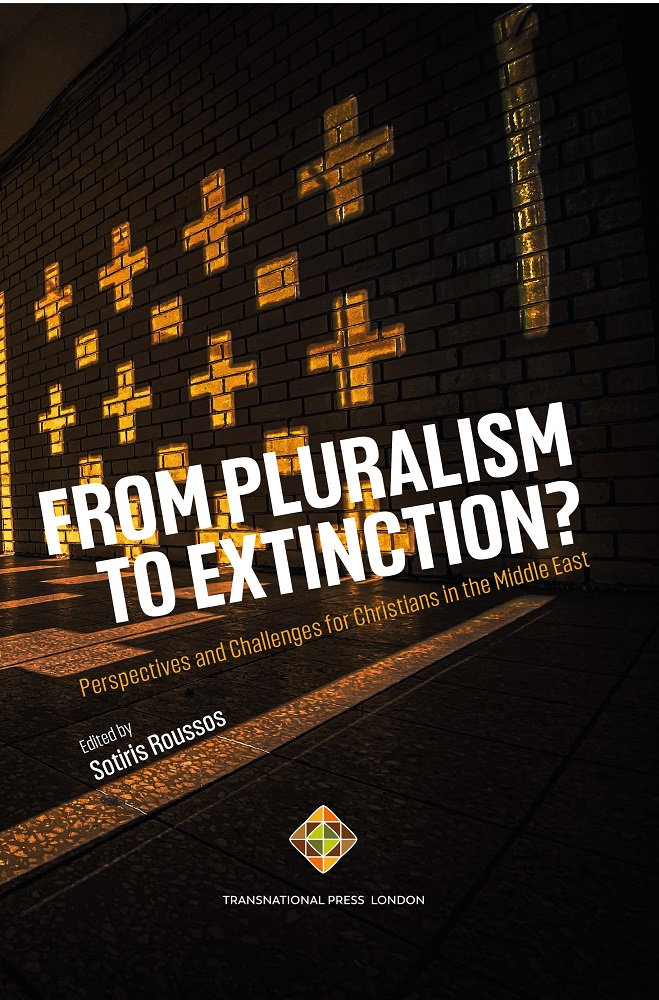
Keywords: Armenian Communities; The Middle East; Losing The Past in The Future; Armenian; Western Armenia; Palestine; Armenian-Islamic; realpolitik; Arabs; Turks; Persians; Kurds; heterodox; Ismailism;
The Armenian presence in the Middle East dates back to ancient times, with the ancestral homeland of Western Armenia being located today in the eastern regions of the Republic of Turkey. While the Armenians are indigenous in some parts of the Middle East, in other parts, they have formed diaspora communities due to a variety of historical circumstances. “Since history has no secret pockets and private laws, things Armenian are also things Near Eastern”, writes Seda Dadoyan, a leading scholar of the history of Armenian-Islamic relations. From the first century of the Christian era, there has been an Armenian presence in Jerusalem, when they came to Palestine as Roman legionnaires and administrators. There is a long and extensive history of “Armenian-Islamic realpolitik with Arabs, Turks, Persians, Kurds as well as heterodox Islam (such as Ismailism)”, according to Dadoyan. Medieval Arab sources provide extensive accounts of Armenians in the Middle East. Indeed, “Arminyah and al arman were presented [in the Arab sources] as indigenous elements of the Near East and the narrative did not single them out from the regional texture”, explains Dadoyan. Since the seventh century, Armenians “have been part of the Islamic world”, and part of what is now the Middle East and its peoples. In the late eighth century, heterodox Armenians allied with “the Muslims on the Abbasid frontiers lands”. More significantly, medieval Armenian histories put the origin of all treaties regulating Islamic-Armenian relations in the Medinan period of Islam (622-632) and see them through a “so-called ‘Prophet’s Oath to Armenians’ (allegedly given to an Armenian delegation from Jerusalem to Medianh)”.
More...